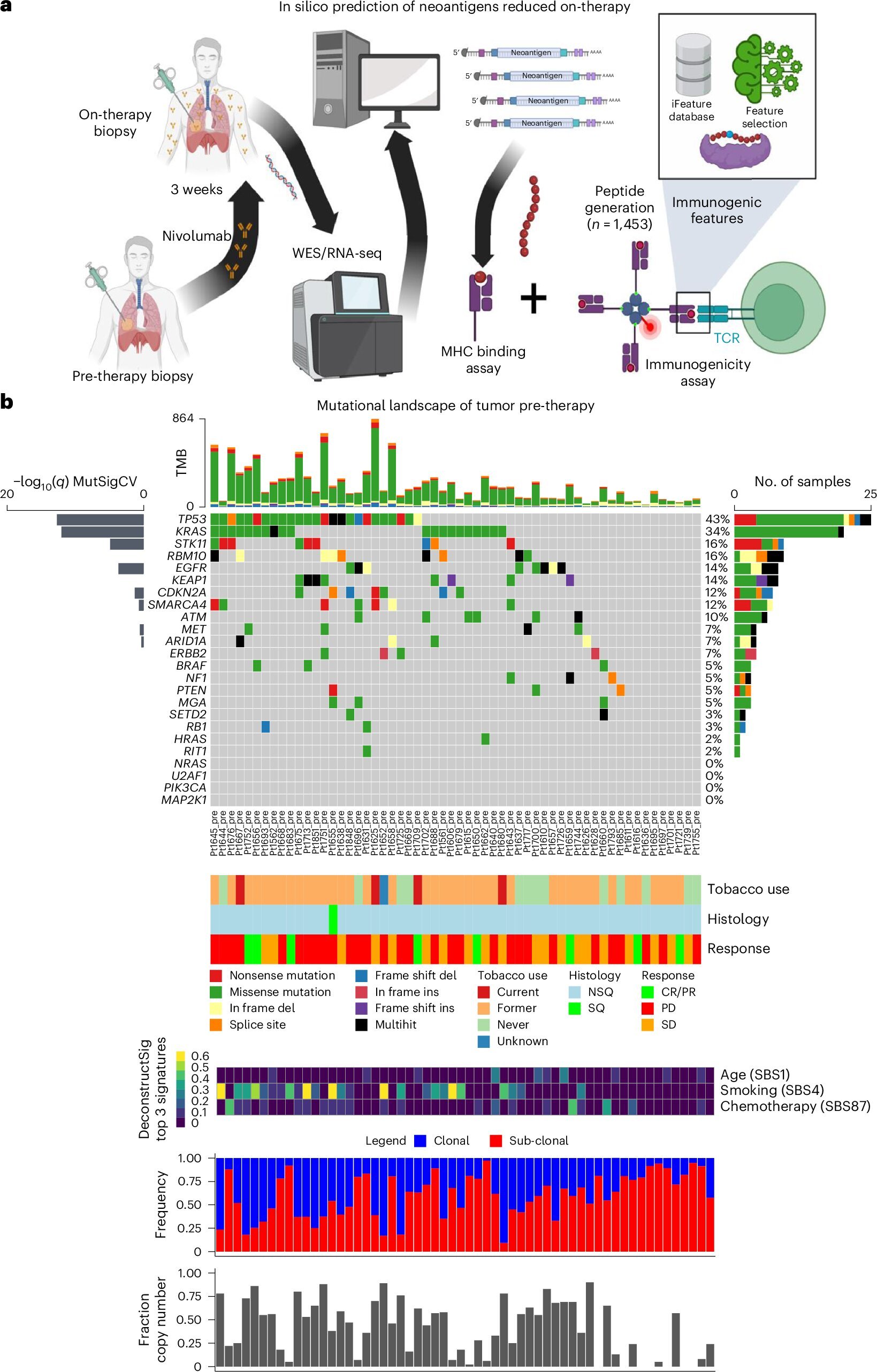The eight-year study, published in Nature Medicine, outlines how cancer immunotherapy induces tumor recognition through neoantigens to reshape the tumor ecosystem. Neoantigens are small peptides produced when cancer cells mutate and are a primary marker for the immune system to recognize cancer cells as different from self.
Neoantigens are thought to be the primary way that the immune system recognizes tumors, but neoantigen prediction tools lack accuracy due to a lack of existing data in this space. To overcome this issue, the team developed the largest neoantigen screen to date, where they validated their predictions and monitored the dynamic response to neoantigens with longitudinal blood draws.
Within three weeks of treatment, people who went on to respond well to nivolumab had a sharp decline in clonal neoantigens. Meanwhile, individuals whose cancer did not go into remission still mounted an immunologic response, but to smaller sub-clonal populations. This is important because many believed that non-responders were unable to activate and recognize the tumor, but here they show it may be that the immune system is mounting a response to neoantigens but that this is insufficient to destroy all tumor clones.


